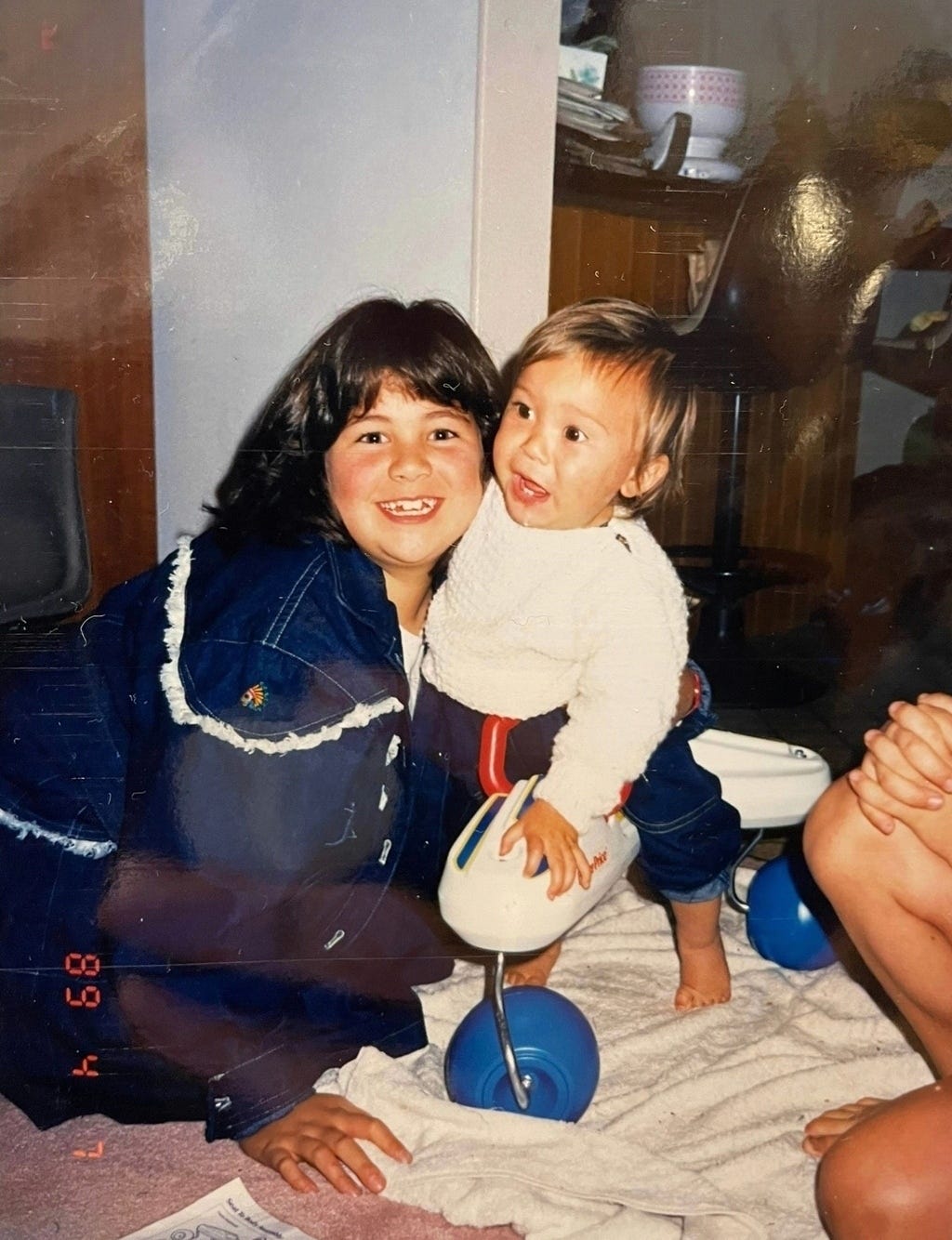Last week this article came out that I was a little bit nervous about on the ABC Everyday website, a public Australian news outlet. They had contacted me a few weeks ago, asking if I would be willing to contribute a personal piece about my experience that I talked about with
for her Burnt Toast podcast (it’s behind a paywall - a very worthwhile one to get full access to Virginia’s work - here) and wrote about here in 2021.It was quite nerve racking, putting myself and my family back out there again, reliving it, but also reliving my own fat childhood (some photos of me as an 8 year old below!), describing things I’d never before said in public, let alone to my own husband. And aside from the inevitable comment or two from people who apparently don’t read the article but insist that I’m not doing my job as a parent and my now 4 year old should go on a diet and exercise (as if those are the only things that will “fix” my daughter, or child-me), the outpouring of messages, shared stories and love was incredible.
It turns out it was a piece that resonated with so many of you and I was so humbled to receive so many DMs than ever before about this topic. So many of the messages brought tears to my eyes.
“A lot of us grew up feeling like there was something wrong with us, and it is so hard to unlearn. Thank you for speaking out.”
“I really needed to see this today.”
“I only wish I could look back on my childhood without it being overshadowed by the parental commentary on my weight.”
“Thank you so SO much for even including about stretchmarks. I have struggled with such shame over getting those as a teen.”
“As a parent now, I’m still struggling with those voices that told me my body was ‘wrong’ or ‘bad’, I wish I had a mother like you.”
“I am overwhelmed with emotion reading all this. So many feelings coming up from my own childhood and thoughts about my body as an adult. Thank you for putting out such a positive, joyful message.”
“I read your article and it made me cry. I was a fat child and was treated horribly by my family because of it… Thank you for writing this piece, as it will hopefully make parents understand how much they can impact the future of their fat child with their behaviour.”
Reading these alone, for me, should be enough for anyone who has shamed someone for their size, whether intentionally or not, to immediately stop and look at what they are doing. Diet culture and anti-fatness is so ingrained in our society that is has become normalised as the “right” way to be. It teaches us —erroneously — that thinness is beautiful, the only indicator of health, and that fatness is bad, that food should be restricted in order to have as small a body as possible to fit into society's unrealistic standards. It is no surprise that so many people feel guilt and shame around food, which is often casually labeled as "naughty" or something to be “earned” or “worked off.” Meanwhile people police their bodies, constantly trying to control or change them. It is frightfully easy to pass this onto the people around us, in particular those we feed, unless the cycle can be broken and diet culture rejected.
Below I have included some resources and some of the things I’ve learned from them that have helped me so much navigate parenting a fat child (things that I couldn’t add to my ABC article! I was already way over the word limit and they didn’t want me to talk with other people’s words).
Firstly, this powerful paragraph from Aubrey Gordon’s You Just Need to Lose Weight:
“Blaming parents for their children’s weight isn’t based in any observable scientific truth, nor does it remedy anything. It only leads to stigma, isolation, and fractured family systems, inviting more pain into the lives of fat kids. It is a reflection of a society that rejects fatness at every turn, making it as issue of personal responsibility so that it can reject fat people once again. And it is a reflection of a society that projects adult anxieties about a purported “obesity epidemic” onto children, then expects children to resolve those anxieties for us. In the process, we make children into political footballs, and we sacrifice their physical health, mental health, self-esteem, relationships, and dignity in the process.”
One of the most important ways to support your children as they grow in bigger bodies is to accept and trust their bodies. As dietitians Sumner Brooks and Amee Severson recommend in their book, How to Raise an Intuitive Eater,
Unconditional love and support for your child's body provides them the opportunity to believe that no matter what their body looks like, you believe they are worthy and loveable.





